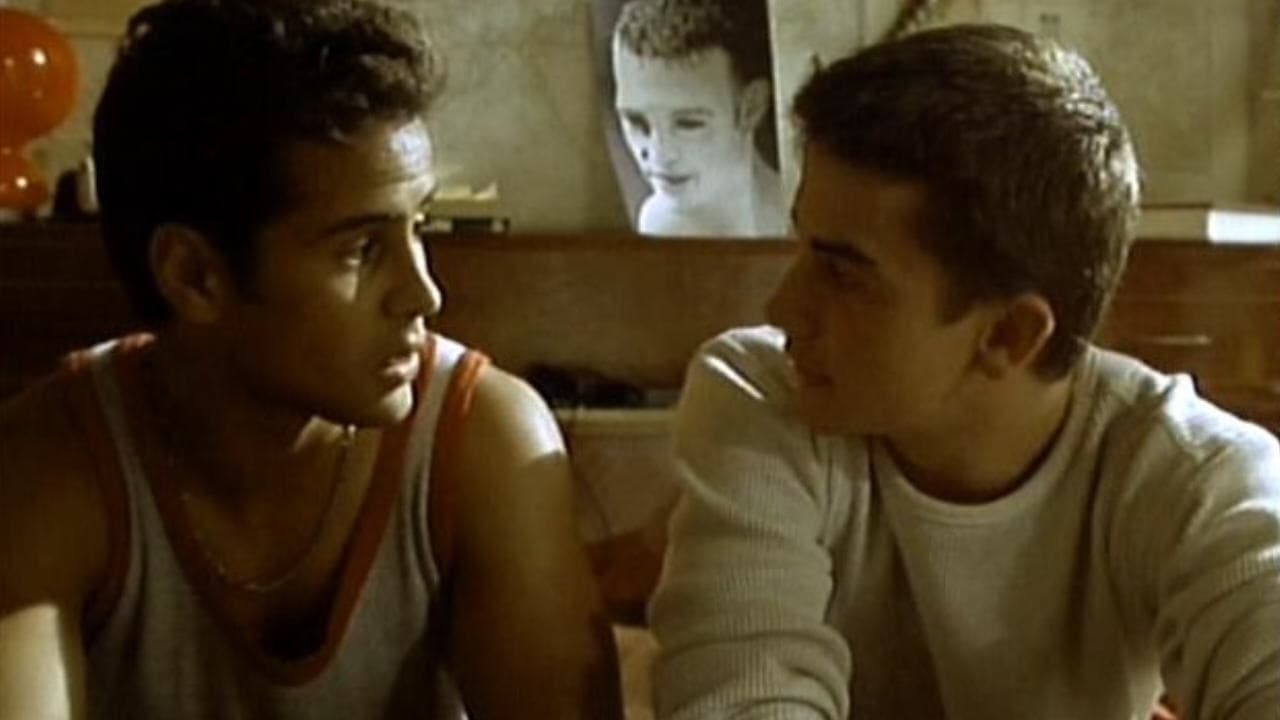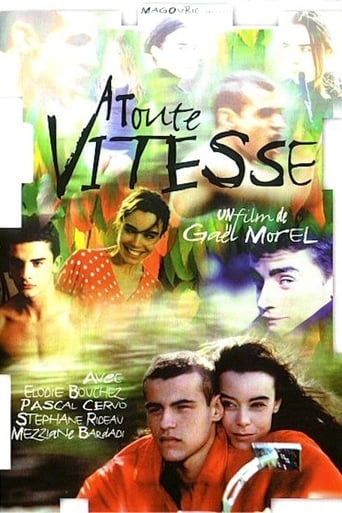

If you like to be scared, if you like to laugh, and if you like to learn a thing or two at the movies, this absolutely cannot be missed.
... View MoreAfter playing with our expectations, this turns out to be a very different sort of film.
... View MoreI think this is a new genre that they're all sort of working their way through it and haven't got all the kinks worked out yet but it's a genre that works for me.
... View MoreThis is one of the best movies I’ve seen in a very long time. You have to go and see this on the big screen.
... View MoreGael Morel's study of the tangled relationships of four teens is fairly sophisticated in structure and theme but, I suspect has little of worth to say to anyone outside of France. The universal themes it touches upon have all been explored before in greater depth and sensitivity, and those themes particular to France are, by their nature, unlikely to arouse interest in foreign viewers. That isn't too say that this film isn't interesting enough, even though it refuses to be hurried and so takes a while to engage the viewer. Probably one of its biggest strengths is in the way it portrays teenagers as rational, thinking adults, capable of maintaining (for a while, at least) adult relationships. Too often these days, teens are poorly written stereotypes either sulking and non-communicative, or sex-crazed and drunk.While the film is primarily character-driven, it unfortunately feels it necessary to contrive a plot in the second half that leans too heavily toward melodrama, and the viewer is left with the unwelcome feeling surely not intended that these characters are mere pawns playing out preordained roles. One character dies a lingering death from a blow to the head, another reaps what he sows, losing everything (emotionally) but learning nothing. When you think about it, that's the kind of stuff Warners were filming with Bette Davis in the 40s, and it damages a film that was made in the nineties.Despite this, Full Speed is worth checking out. For the most part it is a thoughtful, intelligent depiction of the emotional and sociological influences on modern-day teens.
... View MoreGaël Morel co-wrote (with Catherine Corsini) and directed this very French exploration of the manifestations of love in a style that feels more like eavesdropping on private encounters than on a linear drama. The plot is actually tightly woven around each of the four characters, at the same time giving the effect of four characters' viewpoints on love.Samir (Mezziane Bardadi) is a French Arab from Algeria who opens the film in a tender frolic with his 'blood brother' and quickly witnesses the accidental death of the man he loves. He travels to a small town in France, lonely, needy, feeling like an outsider (remember the history of the French Algerian conflict) and encounters a young novelist Quentin (Pascal Cervo) celebrating the publication of his first novel with his best friend Jimmy (Stéphane Rideau) and his girlfriend Julie (Élodie Bouchez) in a dance bar. Samir and Quentin make eye contact and soon a brief assignation outside the club leads to a kiss that the vulnerable Samir views as a sign of love but that Quentin views as strange but as possible content for his next novel.Quentin loves Julie, Julie loves Quentin, but has an eye on Quentin's best friend Jimmy, a lad faithful to his friendship with Quentin to the point of fending off Julie's enamourment. But when Quentin and Samir begin spending extended periods of time together (Samir longing for a physical relationship, Quentin refusing but intent on gathering information for his novel), affinities are tested. Quentin departs for Paris to write, Jimmy and Julie begin a lusty affair, and Samir feels again deserted by a lover. Samir is attacked by gay bashers and defended by Quentin who in the course of the fight sustains a head injury, an injury at first easily resolved but one that later leads to tragedy. Quentin returns from Paris to discover Julie has found love with Jimmy and while Samir's obsession with Quentin races at the new availability of Quentin as a partner, Quentin is disgusted and returns to his career as a writer in Paris and the story comes to a protracted ending with a series of sad incidents: Quentin, the core of each of the love stories remains aloof, dedicated to his growing fame as a writer and gleaning the events as fodder for his assent to literary fame.The stories are bound with threads if same- gender love, homophobia, human frailty and need. The actors are all beautiful for the eye and render tender performances. The countryside of France is exquisitely captured by cinematographer Jeanne Lapoirie and director Gaël Morel manages to weave these little stories in a conversational, simple manner that appeal to the heart and the eye. For some the film may seem rambling and disconnected and unfairly compared to 'The Wild Reeds', but Morel has a sensitive, gentle manner in setting a mood that allows it to flow like a stroll through the flowering woods of young passions. Recommended. Grady Harp
... View MoreGael Morel is the purveyor of CRUEL INTENTIONS - French style. As with his earlier flick WILD REEDS (also with the services of the two leads here) its all about rebellious youth, angst and homophobia. At its core, a young French writer makes friends with a gay Algerian boy to give himself material and inspiration for a book he is writing.To non-Europeans however the detritus bequeathed France by the Algerian conflict is not a known or patriotically understood aspect of modern history and will lead to understandable confusion at much of the youthful confrontation.A passionately made film (know most everywhere as FULL SPEED) that just might overstep the sexual and class excesses it strives so hard to portray with earnest. Certainly a film to see and discuss - it just helps to be French!
... View MoreI took this movie on sexual orientation, racism, and relationships to be a slightly schematic allegory about how French intellectuals have abdicated their responsibility to marginalized people in society--Quentin, the successful young (white)writer takes off for Paris to be lionized by the literary establishment, leaving his working-class, gay, and North African buddies to defend themselves against the local rightwing thugs. He really has little interest in his erstwhile friends except to instrumentalize their pain and anger as material for his new book and for a public display of "concern." A bit slow, but not a waste of time.
... View More